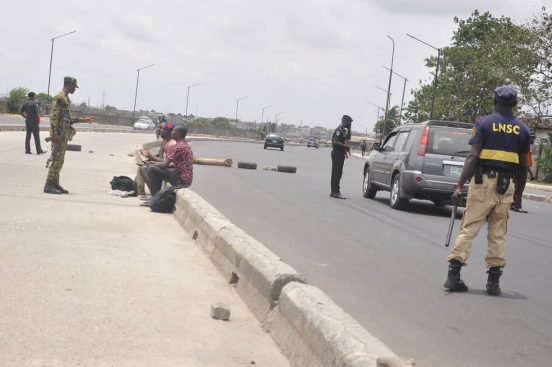A report says that the discretionary powers granted to governments by the Quarantine Act has led to gross abuse of power during the peak of COVID-19 pandemic in Nigeria.
The study which was conducted by the Open Society Justice Initiative (OSJI), in partnership with the Network of University Legal Aid Institutions (NULAI), noted that the emergency regulations for the safety and protection of citizens during infectious diseases would expose the country to wanton use of powers.
- Aisha Yesufu makes BBC’s 100 most influential women in the World
- Maina: Court moves to jail second lawmaker, orders arrest of Maina’s son
“Reports show that violations and abuse of rights across Nigeria were related to extra-judicial killings by law enforcement officials, restrictions on the right to freedom of movement; unlawful arrest and detention, confiscation and destruction of properties; torture, inhumane and degrading treatment, extortion and sexual & gender-based violence.”
The report which focused on mobile courts established within the Federal Capital Territory, FCT, to adjudicate cases of violations of lockdown and curfew regulations showed that 7996 persons were prosecuted out of which; 2593 (30.7%) were discharged; 544 (6.4%) were acquitted; 37 (0.4%) were transferred, and 5284 (62.5) were sentenced.
Mahmud Yusuf, Programme Manager, NULAI Nigeria said the study conducted between April 23 to June 1, 2020, used the framework of the approach used by the FCT’s COVID-19 mobile courts in protecting constitutional rights of defendants asking “how did the use and enforcement of non-custodial sentencing affect sentencing guidelines and support reduction in use of detention?”
He added saying “216 sittings occurred across 13 locations of the mobile courts, the findings urged that powers conferred on the governments and the Director-General of NCDC in the proposed Infectious Diseases Bill be limited for adherence to rule of law reflecting existing legislations and ongoing justice sector reform initiatives.”
“Greater attention needs to be given to educate or sensitize members of the public on public health guidelines and existing regulations during health emergencies using different mediums especially community groups.”
He stressed that “legal services play important role in keeping the balance of power and protection of human rights during these periods, thus, lawyers and other rights defenders should be included on the exempt list to allow the freedom of movement as granted to medical personnel.”
Yusuf maintained that the abuse of power “seen at the onset of covid-19 regulations by security agencies and the executive indicated that all sectors need to review the state of pandemic preparedness.
“As seen by the FCT mobile court experiences, the judiciary was not pandemic ready and did not contemplate how the society could continue to function in such circumstances.”
He concluded that the use of non-custodial sentencing highlighted some challenges that the Nigerian Correctional Service and other sectors need to consider as the criminal sector prepares to commence use of non-custodial sentencing.




